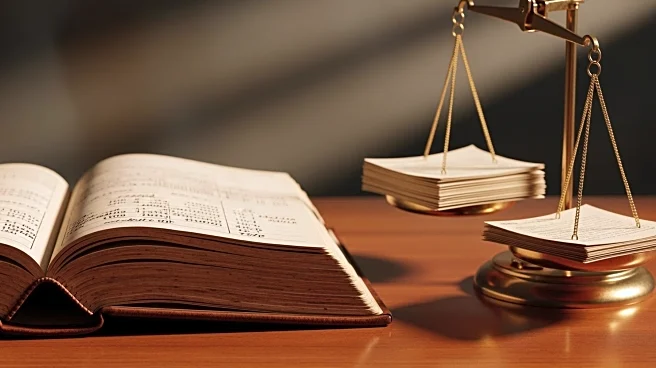What's Happening?
Jelena Ostapenko has issued an apology following a heated exchange with Taylor Townsend at the US Open. The incident occurred after Townsend defeated Ostapenko in a second-round match, leading to a courtside argument where Ostapenko accused Townsend of having 'no class' and 'no education.' Ostapenko later clarified that her comments were intended to address tennis etiquette, specifically a moment during the match when Townsend did not apologize for a net cord that assisted her in scoring a point. The backlash from the tennis community was swift, with notable figures like Naomi Osaka criticizing Ostapenko's remarks, highlighting the racial insensitivity of her comments in a predominantly white sport. Ostapenko has since apologized, stating that her words were misunderstood due to language barriers and expressing her commitment to learning and growing as a player.
Why It's Important?
The incident underscores ongoing discussions about race and etiquette in sports, particularly in tennis, which has historically been a predominantly white sport. Ostapenko's comments were perceived as racially insensitive, drawing attention to the challenges faced by Black athletes in navigating such environments. The swift backlash and subsequent apology highlight the importance of cultural sensitivity and the impact of language in international sports. This event may influence how athletes communicate and address issues of etiquette and respect on the court, potentially leading to broader discussions on inclusivity and diversity in tennis.
What's Next?
While Ostapenko has apologized, the incident may lead to further scrutiny of player interactions and the enforcement of etiquette rules in tennis. The US Open and other tennis organizations might consider implementing more comprehensive guidelines to prevent similar incidents. Additionally, Townsend's continued participation in the tournament could serve as a platform for further dialogue on race and sportsmanship in tennis. Stakeholders, including players and governing bodies, may engage in discussions to promote a more inclusive and respectful environment in the sport.
Beyond the Headlines
The confrontation between Ostapenko and Townsend highlights the broader cultural dynamics within tennis, a sport that is increasingly diversifying. It raises questions about the role of etiquette and respect in sports, particularly in high-pressure environments like the US Open. The incident may prompt athletes and organizations to reflect on the cultural and ethical dimensions of sportsmanship, potentially influencing future interactions and policies within the sport.









